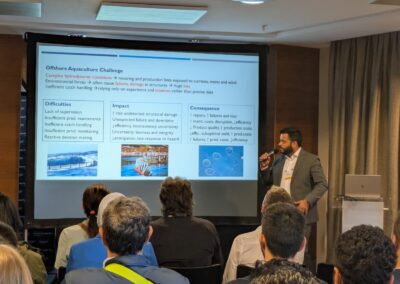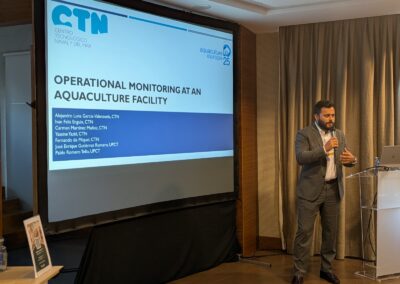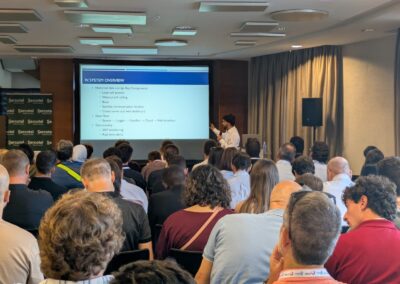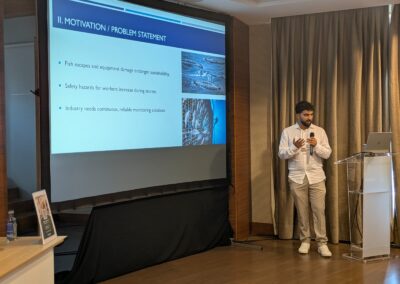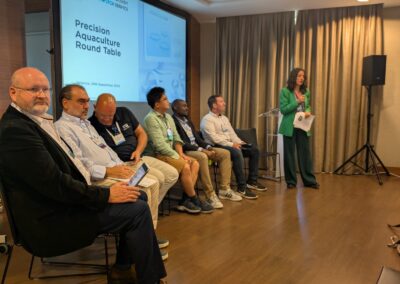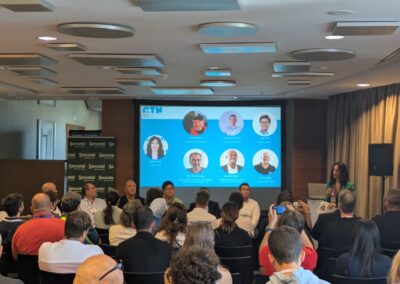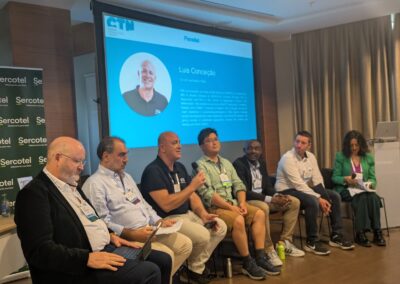Precision Acuaculture 4.o Session
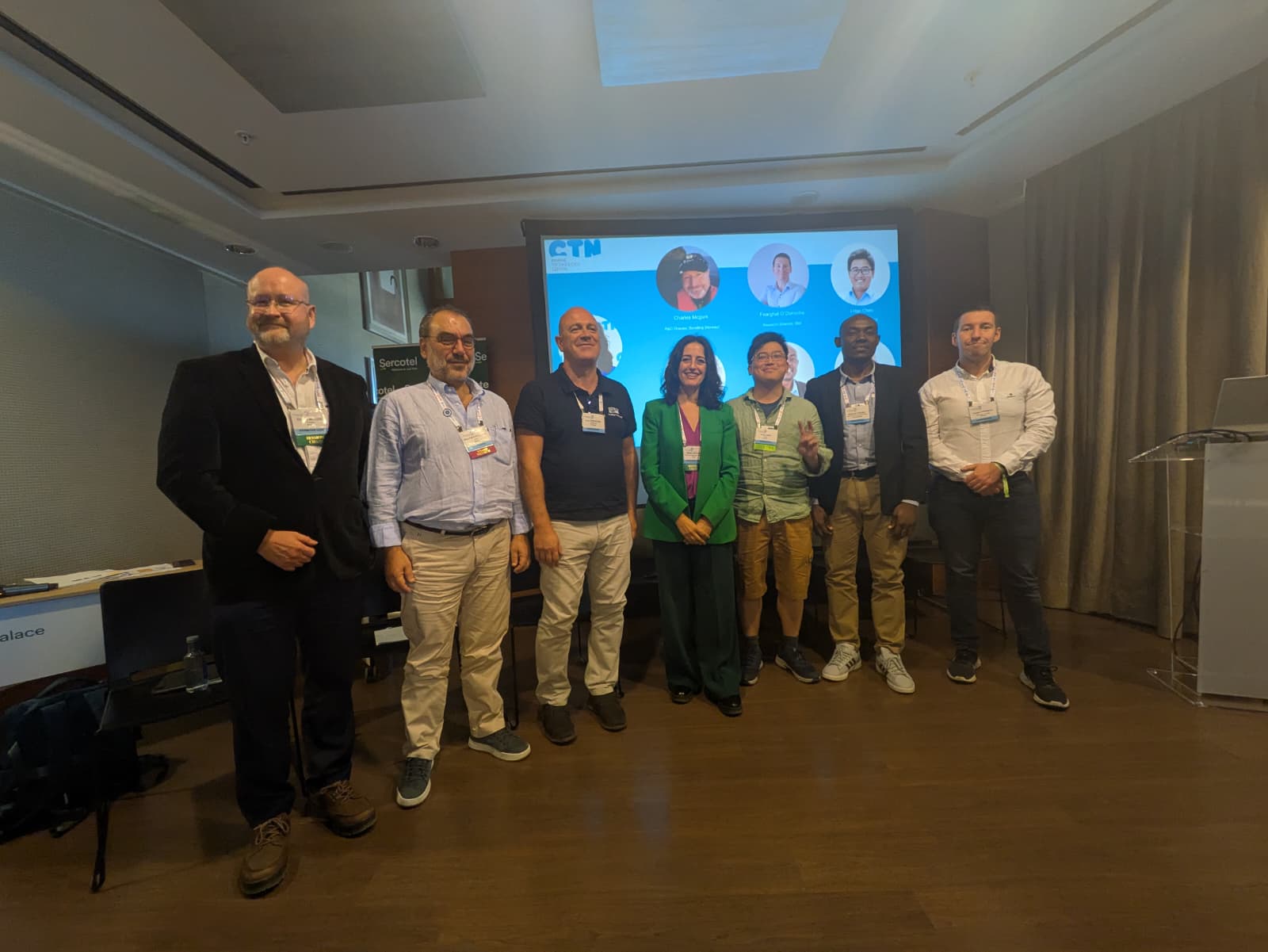
Operational monitoring at an aquaculture facility
In this abstract presentation, Alejandro Luna García-Valenzuela showcased CTN’s leadership in driving the digital transformation of aquaculture operations through its Aquaculture 4.0 approach.
He explained how CTN combined smart sensing technologies with advanced data analysis and artificial intelligence to create a powerful real-time monitoring system. Two pilot projects were presented: a floating cage in Cartagena and a mussel raft in Mutriku. Both sites were equipped with sensors and data models that tracked structural integrity, environmental loads, and biomass growth. Results showed strong agreement between measured and predicted data, validating CTN’s methodology and demonstrating clear benefits for risk reduction, efficiency, and decision-making.
Luna emphasized that this pioneering work not only provides reliable tools for current operations but also lays the foundation for future expansion into more demanding offshore environments, confirming CTN’s role as an innovator in sustainable and technology-driven aquaculture.
Remote monitoring of offshore aquaculture structures using load cell sensors
In this abstract presentation, Yassine Yazid presented the work of the Marine Technology Centre (CTN) on developing a cutting-edge monitoring system to safeguard offshore aquaculture cages exposed to harsh marine environments. CTN’s solution integrates load cell sensors that continuously measure the tension on mooring lines, transmitting the data via satellite to a secure cloud platform.
This setup enables remote access, real-time alerts, and early detection of structural stress, particularly during storm events. Yazid highlighted how the system not only reduces the risk of equipment failure and fish escapes but also supports predictive maintenance strategies that lower operational costs and enhance long-term sustainability.
By combining technology, data analysis, and satellite connectivity, CTN demonstrated its commitment to advancing safer and more resilient offshore aquaculture practices.
Precision Aquaculture Roundtable
In this roundtable, leading experts from industry, academia, and research institutions came together to discuss the future of Precision Aquaculture 4.0. The session explored how digital technologies, artificial intelligence, and smart sensing are transforming aquaculture into a more sustainable, efficient, and data-driven sector. Topics ranged from advanced fish nutrition and feeding automation to digital twins, climate resilience, and aquaculture-environment interactions.
– Noelia Ortega – Director, CTN (Marine Technology Centre, Spain)
– Charles McGurk – R&D Director, Skretting (Norway)
– Fearghal O’Donncha – Senior Research Scientist, IBM Research Europe – Ireland
– I-Hao Chen – Researcher, NORCE (Norway)
– Nikos Papandroulakis – Research Director, Institute of Marine Biology, Biotechnology and Aquaculture, HCMR (Greece)
– Suleiman Yakubu – Postdoctoral Research Fellow, Institute of Aquaculture, University of Stirling (UK)
– Luis Conceição – Co-CEO and Head of R&D, SPAROS (Portugal)
